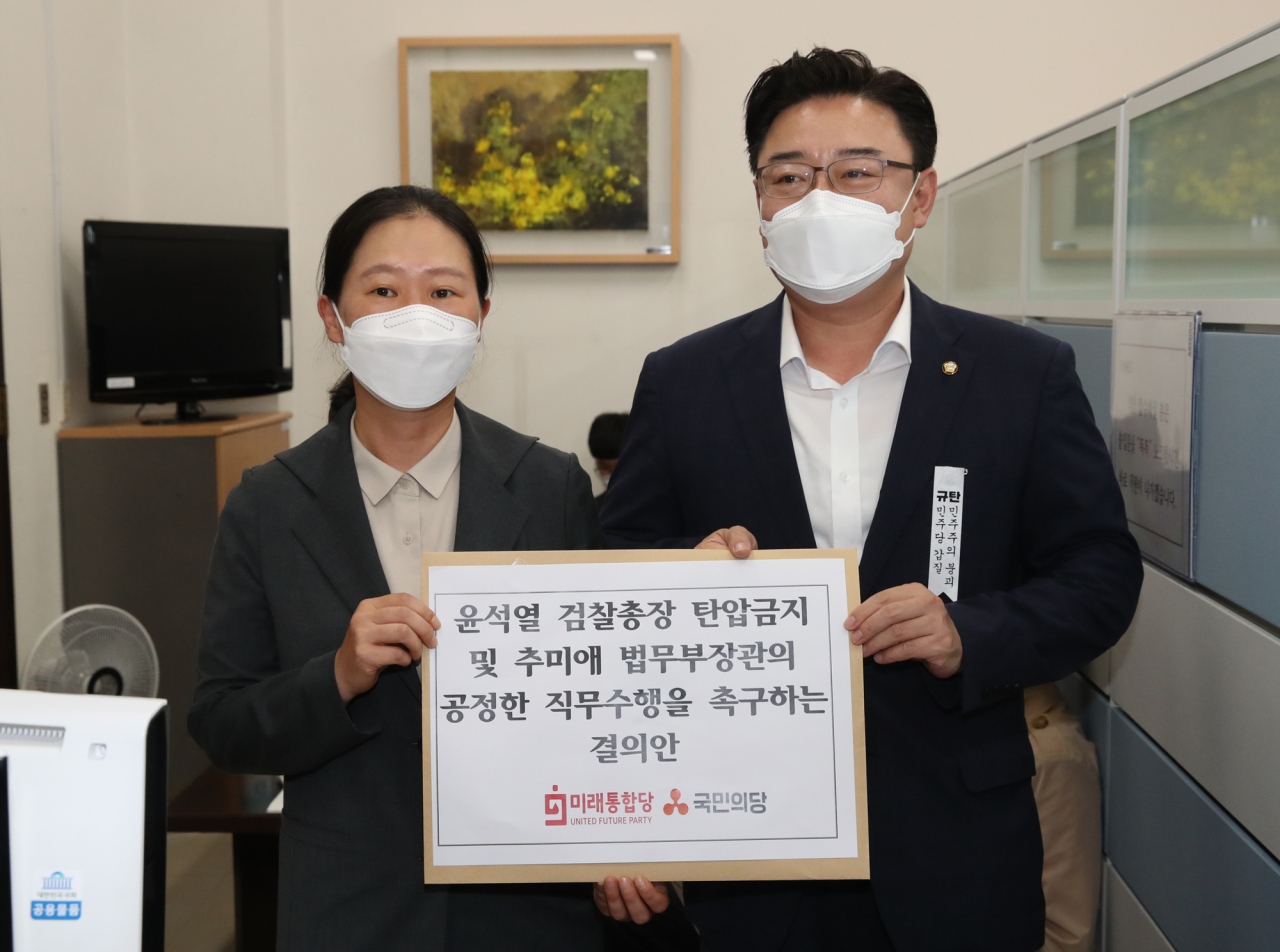
Prospects are growing for a conservative coalition, as two opposition parties seek ways to challenge the mammoth ruling Democratic Party of Korea, which holds the biggest majority ever claimed by a single party in the history of the National Assembly.
Cooperative moves gained traction since the right-wing United Future Party, the largest opposition party with 103 lawmakers, and center-right People’s Party with three lawmakers launched a joint study program called the People’s Future Forum in early June, where party leaders and lawmakers share and discuss the future course of their policy directions.
According to Rep. Kwon Eun-hee, floor leader of the People’s Party, the two parties selected the basic income system for young people and families with infants as a policy project that could lead to legislation.
Recently, unconditional cash support has emerged as a hot potato issue in the political scene after Kim Chong-in, interim leader of the United Future Party, suggested it is time for the party to reconsider it. Universal welfare has been a typical liberal policy agenda item, but conservatives have been warming up to the idea after the recent coronavirus relief money payouts received wide public support.
“Policies and its direction that Kim Chong-in put forward match with policy projects that People’s Party has been reviewing,” Kwon said.
On Friday, the two political groups jointly submitted a resolution calling for fairness for Justice Minister Choo Mi-ae, who came under criticism for allegedly abusing her power to disrupt the prosecution’s investigations on powerful figures.
Kwon recently had a series of meetings with her United Future Party counterpart Joo Ho-young and the party’s chief policymaker Lee Jong-bae to discuss ways that the two parties could band together on policymaking.
The main opposition party needs political leverage to stop the ruling Democratic Party, which practically holds a supermajority with 176 seats in the 300-member unicameral parliament.
Buoyed by the unprecedented grip on the assembly, the ruling party pushed ahead with forming parliamentary standing committees and passed a third extra budget bill despite the opposition party’s boycott of the sessions.
Further sharp disputes are widely expected on the road as thorny issues are waiting to be resolved in July, including an establishment of a new anti-corruption investigative agency to probe high-raking public officials and measures aimed at cooling the real estate market.
As much as the United Future Party, the People’s Party needs to bolster its presence. Trying to break away from old politics, former presidential candidate Ahn Cheol-soo launched the party just two months before the April general elections, but only received lukewarm response from voters, who granted them three parliamentary seats.
Ahn has ruled out the possibility of forging a coalition with other parties, stressing he would keep his pledge to build a practical and moderate group.
By Park Han-na (hnpark@heraldcorp.com)








![[From the Scene] Monks, Buddhists hail return of remains of Buddhas](http://res.heraldm.com/phpwas/restmb_idxmake.php?idx=644&simg=/content/image/2024/04/19/20240419050617_0.jpg&u=20240419175937)






![[From the Scene] Monks, Buddhists hail return of remains of Buddhas](http://res.heraldm.com/phpwas/restmb_idxmake.php?idx=652&simg=/content/image/2024/04/19/20240419050617_0.jpg&u=20240419175937)

![[KH Explains] Hyundai's full hybrid edge to pay off amid slow transition to pure EVs](http://res.heraldm.com/phpwas/restmb_idxmake.php?idx=652&simg=/content/image/2024/04/18/20240418050645_0.jpg&u=20240419100350)

![[Today’s K-pop] Illit drops debut single remix](http://res.heraldm.com/phpwas/restmb_idxmake.php?idx=642&simg=/content/image/2024/04/19/20240419050612_0.jpg&u=)